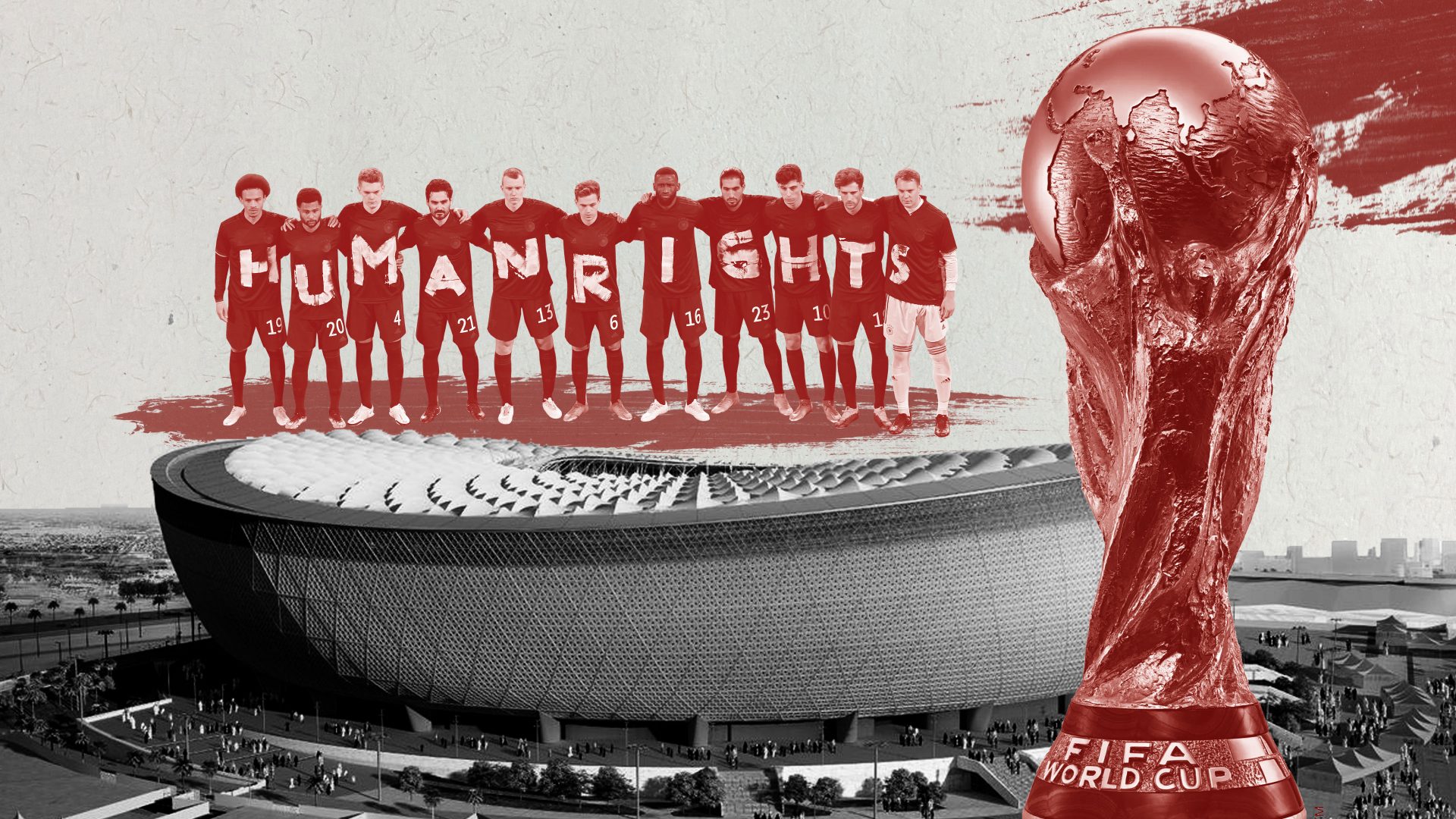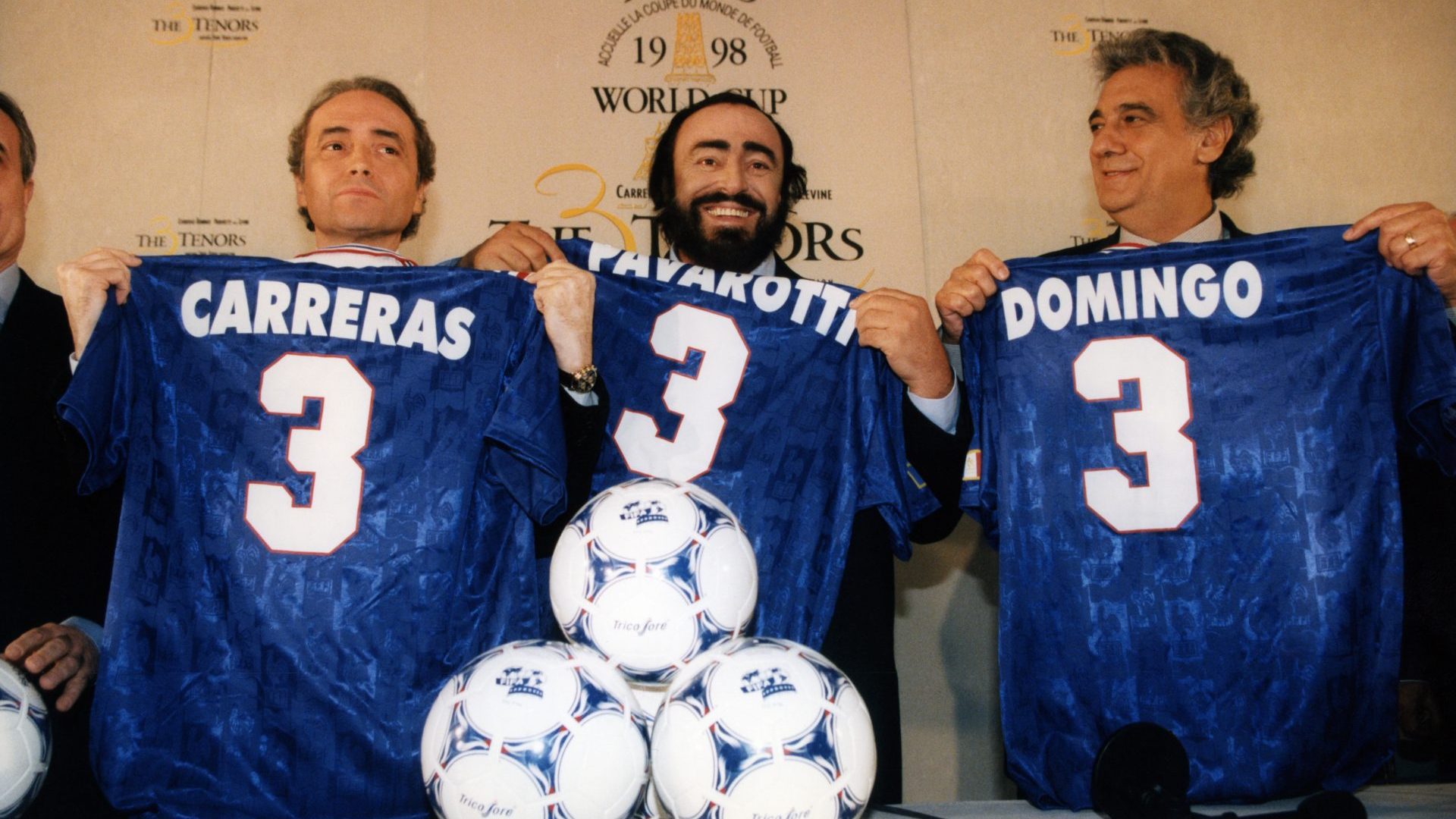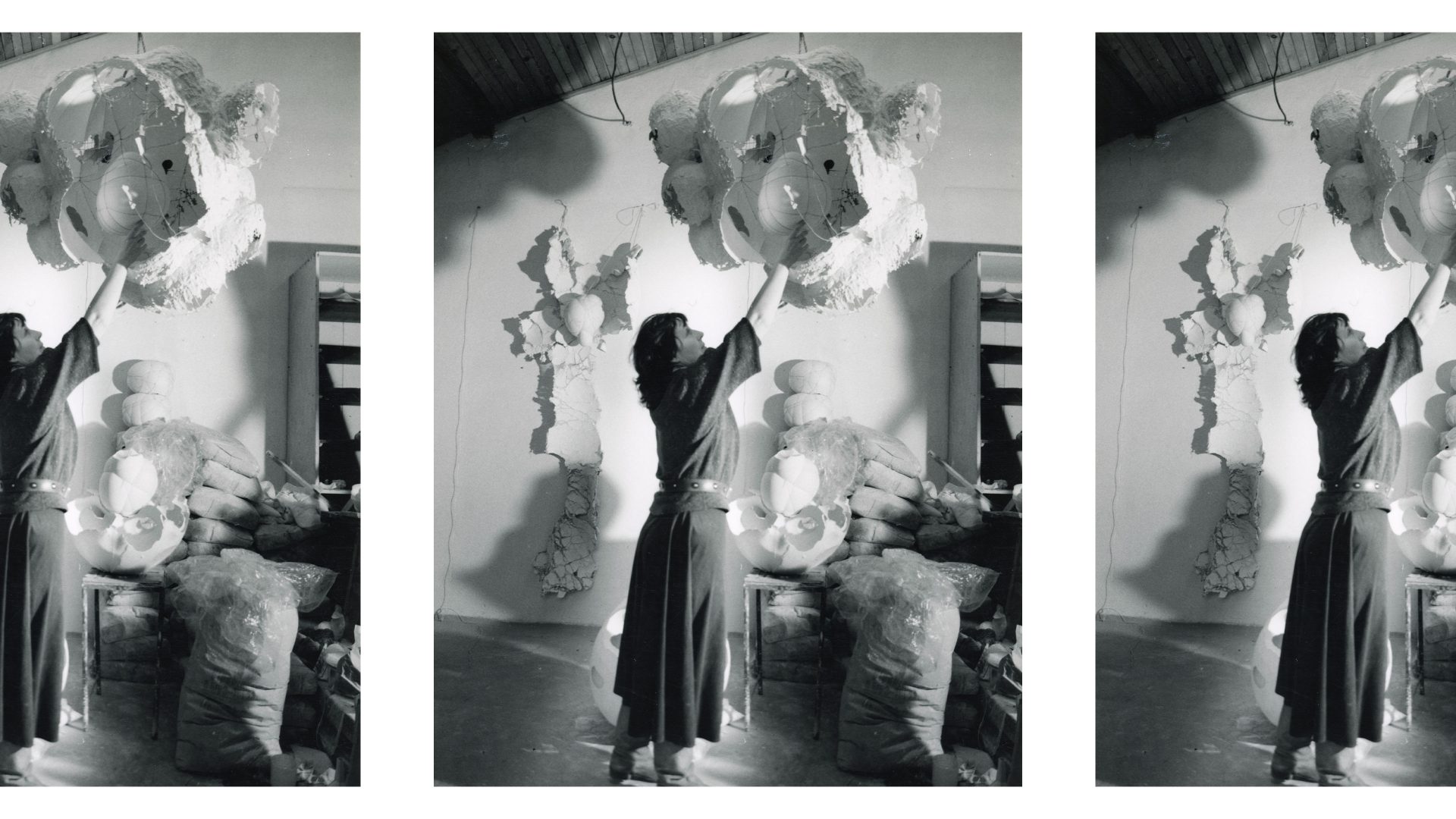Between 1966 and 1974, Helmut Schön coached West Germany to defeat in a World Cup final, to a third-place finish and then to international football’s ultimate triumph on home soil in Munich against Johan Cruyff’s Netherlands. He summed up his bittersweet experience of the tournament in a sentence: “You approach them with one eye laughing. The other weeping.”
Schön is no longer with us but his words resonate as we approach Qatar. And there, the weepy eye will overshadow the joyful one.
The quadrennial celebration of football is being hosted in a land whose own World Cup ambassador describes homosexuality as a “disease of the mind”, in stadia built with forced and exploited migrant labour. The football concerns are secondary but significant; playing a World Cup in a desert nation means plonking it into the middle of the European season and thrusting players towards what should be a peak of their careers with virtually no acclimatisation to heat, to culture, let alone to the different playing styles their national teams employ compared to their clubs.
In any other time, any other place than Qatar, the World Cup 2022 might
be viewed with great expectation as the last opportunity for the three most
coveted talents in the sport – Argentina’s Lionel Messi, Portugal’s Cristiano Ronaldo and Brazil’s Neymar Junior – to try to win that trophy that defines greatness.
Each is into his mid-thirties. Half a lifespan, perhaps, but on the final legs
of sporting careers. If Messi, the most joyful player of his generation, could
lead Argentina to the prize, he might finally be loved at home on a level with Diego Maradona.
If Neymar wins, he would still be nowhere near the mantle Pelé earned through winning three World Cups with Brazil – in 1958, 1962 and, the
most marvellous tournament ever, 1970. But, again, Neymar needs one
hand on the trophy to validate his reputation.
And Cristiano? A few months shy of his 38th birthday, more decorated at
club level than the great Eusébio and Luís Figo – and arguably more self-driven than any player in the game, Ronaldo’s own talents may be in decline but he has around him half-a-dozen, maybe more, gifted Portuguese with whom to attempt a transition from European to world champions.
If we add Kylian Mbappé, already a World Cup winner with France, and Kevin De Bruyne, who has gone close to the final with Belgium, we have a
handful of worldly talents hungry for and worthy of that final accolade.
Fifa exaggerates its trophy because this is no more a “world” tournament
than America’s World Series baseball. Football is indeed the most played
game on earth; but if it were truly representative of the human race why
have China and India, with more than one third of the global population,
only played at one event?
I have been privileged to report a dozen World Cups, and for sure Schön’s conclusion, made to me in 1970, best sums up that journey. But Schön never envisaged how the corrupt men of Fifa would, for personal gain and nothing else, hand the 2022 finals to Qatar. The same committee awarded the 2018 World Cup hosting rights to Russia. Some of those men who took bribes for their votes for both tournaments have since been jailed. Some died before they could be prosecuted. A few knew it was wrong, and were excommunicated by Fifa for saying so.
We are where we are. Players have no choice but to play where they are told. Clubs likewise have no say in when or where this World Cup cuts in two their business, their season.
A “winter” World Cup has never happened before in the 92 years of the event’s history. Fifa pays wage compensation to the clubs in millions, and rakes in billions from television rights and sponsorships. And while the current Fifa president, Gianni Infantino, was not involved in the selling of votes for hosting rights to such places as Russia and Qatar, his brazen intention is to double Fifa’s pot of gold by persuading the national federations to stage World Cups every two years rather than four years.
Infantino is not a football man. He is a Swiss lawyer on a power kick. His
mandate comes from the one country-one-vote system from 211 Fifa member nations, states and territories. The more he can give them, the more they sustain him in power. It was the same for the now-banished Sepp Blatter – even he now recognises that Qatar was a calamitous error – and before him João Havelange, the Brazilian water polo player who invented the golden triangle of sport-TV-advertising that enriches not only Fifa but also the Olympic Games.
Havelange turned impecunious sports overlords into billion-dollar greed machines. He colluded with criminals and heads of state.
Blatter became Havelange’s right-hand man at Fifa House in Zürich and then his successor. Infantino inherited the mantle, and Infantino is now at work to dilute quality. His plan is to increase the World Cups from 32 teams this year to 48 in America, Mexico and Canada in 2026. Yet the quality was at its highest between 1934 and 1978, when the finals featured just 16 nations, the cream of the world game.
Maybe nostalgia persuades me that the football was purest in 1970, the first technicolour World Cup starring Pelé and Tostão, Gérson and Rivellino in Mexico’s heat and high altitude.
Nothing, of course, stays the same. The sheer pace and intensity of life makes the contest less forgiving. The financial rewards are off the scale. And the temptation to sell principles to the highest bidder is unrelenting.
Qatar claims that it is the west, Europe in particular, that does not play ball. They have a point because neither the Emir, nor Vladimir Putin, are the first to accommodate Fifa’s penchant for selling the game to the highest bidder, regardless of human values.
There have always been politicians and warmongers who used sports to legitimise their aims. Adolf Hitler hosted the 1936 Berlin Olympics to promote the “supremacy” of the white Aryan, non-Jewish, race. The Führer
was humiliated in his own stadium by the wonderful Jesse Owens, who won
four gold medals.
Spin forward from there to 1978, when General Jorge Rafael Videla thought that Argentina winning the World Cup in Buenos Aires meant that the world would turn a blind eye to his junta’s murder and systemic torture of his own population. As Videla sat in the tribune, flanked by Havelange and Henry Kissinger, he totally misjudged us if he felt that mere sports journalists would be taken in by the euphoria in the stadium while outside mothers demanded to know the whereabouts of los desaparecidos – “the disappeared”. These were their sons and daughters who, by dint of being students, writers, artists or trade unionists, were killed in Videla’s torture chambers within screaming distance of Estadio Mâs Monumental, where Argentina won the World Cup it hosted.
That tournament was thrilling, charged with at times almost superhuman pace and emotion. Yet it was overshadowed by fear and violence and with the suspicion that all was not fair on the field either. How could Fifa be so blinkered by sporting glory to be deaf and blind to the depth of inhumanity going on?
We were weaned on the mantra “sport, not politics”. Well, try telling that to the modern generation. Nine European captains – those of England and Germany among them – have vowed to wear rainbow armbands on their sleeves in Qatar. But this ultimately may be no more than symbolism, because as long as Harry Kane and the rest play the matches they are legitimising Qatar’s right to host them. Look at the rough ride Gary Neville got on Have I Got News for You? the other week simply for going there to commentate.
Sport being above politics is old idealism. Olympic officialdom ostracised Tommie Smith and John Carlos for their Black Power salute on the rostrum of the 1968 Mexico City Olympic Games, but today’s athletes are willing to make – or willing to be pushed into making – humanist and political statements. Turn on any match on Sky Sports or BT and you will see slogans supporting Black Lives Matter, LGBT+ rights and the causes of our times.
The supposed innocence of sports is gone. The broadcasters, and some players in all sports, no longer think we can treat athleticism as being
purely of the body and either above or separate from human rights. Or
wrongs. For me, the playing of national anthems, promoting nationalism, long ago contradicted this supposed separation.
But listen to the hypocrisy of Fifa president Infantino, lecturing us by video message on the kingdom where the World Cup will be played. “We always said Qatar will deliver the best-ever edition of the Fifa World Cup,” he pronounced. “As you look around the country at the state-of-the-art stadiums, the training pitches, the metro, the wider infrastructure, everything is ready and everyone is welcome.”
Welcome, in a land so homophobic it criminalises single sex couples? “Let
me repeat this clearly,” Infantino went on, “everyone will be welcome regardless of their origin, background, religion, gender, sexual orientation or nationality.” He can promise that?
As to human rights and the estimates of thousands of migrant workers killed by toiling in inhumane heat while building the stadiums and the infrastructure, Infantino praises Qatar’s “ground-breaking reforms changing the lives of thousands of workers for the better.”
Infantino speaks with vested interest. Fifa goes where the money is, sportswashes the events, banks the profits, and moves on. But these are
playgrounds for the young, the gifted, like England’s Jude Bellingham and
Germany’s breathtakingly precocious Jamal Musiala. Both play with vision
far beyond their 19 years, just as Kylian Mbappé did in Russia four years ago.
Make that four and a half years ago. I almost forgot this is a winter World Cup from a European perspective. But while the heart and the eyes smile in
anticipation for what youth might deliver over the next month, Eric Cantona, that gifted rebel of his time, commented the other day that you cannot condemn a 20-year-old player, who has a 10-year career ahead of him and who lives in a world surrounded by football 24 hours a day, from going to the ball on any territory.
Instead, Cantona said: “Speak about the federations, about politicians who
had the power to say ‘No, we do not go to the World Cup.’”
No, indeed. Mark Drakeford, a man of Labour and of the people in Wales,
said last month that he will go to Qatar. Not simply to bask in the glory that
Wales has reached the finals for the first time since the John Charles, Jack
Kelsey, Ivor Allchurch and Cliff Jones team went to Sweden in 1958, but “to
promote Wales and engage in diplomacy”.
One eye laughs for Wales. The other finds it difficult to ignore where the
players are led to go. That, however, must be unjustified trepidation because what can be wrong with a tournament that has David Beckham as its poster boy and will have Robbie Williams and the American group Maroon 5 and rapper Post Malone performing concerts?
Beckham, now 47, says, through his spokespersons, that he’s been coming
to Qatar for years. He’s seen the hospitality, the warmth of the people. “We talk about football being for everybody,” Beckham’s statement goes, “and this is the first time the World Cup is being hosted in this region. That is an incredible moment.”
Incredible, too, are the fees, reportedly between £10m and £15m per year for 10 years that the state of Qatar has paid Goldenballs to promote their state.
Maybe with one eye laughing, and the other closed.




